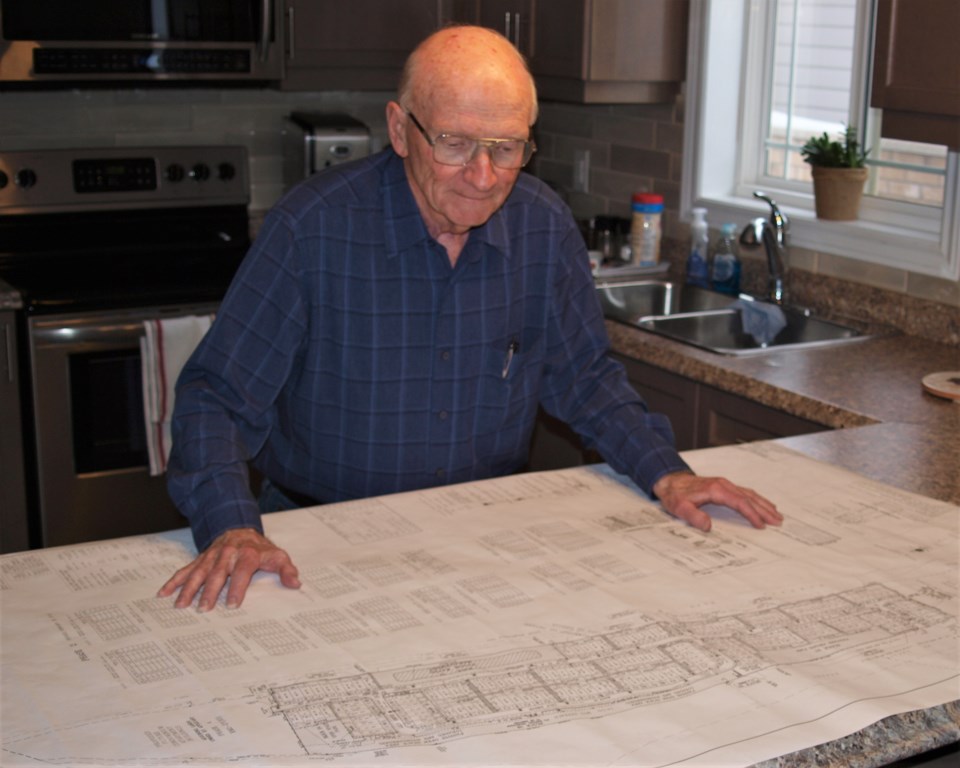There are more than 500 residents in Orillia who are paying property taxes but are being denied some of the basic municipal services enjoyed by everyone else, says Scott Maclagan.
Those citizens live in what are known as common-elements condominiums. They live in developments governed by condominium corporations and pay a monthly fee to cover the costs of ‘common elements’ such as street-clearing and street lights and sewer services.
But here’s the rub: they also pay property taxes to the city. And that infuriates Maclagan, who has been fighting the scheme for more than a year after he bought a townhome at North Lake Village at the north end of Laclie Street.
While each development is different, Maclagan pays about $4,000 in annual property taxes, but also pays an $84 monthly fee for those "common elements."
In recent months, he has reached out to other local common-elements condominiums in Orillia – there are 505 units in more than a dozen developments – and rallied residents to join his fight.
On Monday night, he made another deputation to city council asking for help.
As part of his brief but powerful presentation, Maclagan noted the common-element condominium concept allows developers, in essence, to reduce their initial, upfront costs by building narrower-than-standard roads.
That narrow roadway is then used by the municipality as a reason to deny full services.
“How is this fair or just?” he asked.
“While Planning and Condominium Acts permit common element developments, it does not make it right for the city to approve them unless the city agrees to provide full municipal services despite the narrow roadways,” Maclagan told council.
“Whoever was behind the development of this concept for the provincial government many years ago did not have the foresight to see the disparity it would create,” he said. “Perhaps they did not realize municipalities would take advantage of future common-element condominium owners in the manner they have.”
He said the legislation “has created two classes of taxpayers within the same municipality. Both are paying essentially the same taxes … with one receiving full municipal services while the other does not and, most importantly, becomes responsible for the long-term road and infrastructure costs related to the condo corporation.”
He encouraged city politicians to consider the best interests of current and future taxpayers rather than focus on costs.
Ultimately, he wants the city to pass a bylaw to reclassify or rezone current and future common-element condominiums as standard subdivisions that receive full municipal services.
“The desired end result would be to have all property taxpayers being treated equally or fairly,” said Maclagan, who received a rousing ovation from about three-dozen condo dwellers who attended Monday night’s meeting in support of the cause.
To reach that destination, Maclagan urged council to create a working group to study the matter. Council, at the urging of Ward 4 councillor Tim Lauer, who said he spent much of Saturday at North Lake – where he received an ‘earful’ – agreed.
The new working group, to be convened in January of 2019, will be comprised of one city councillor from each ward, six representatives from the common-elements condominium group and one city staff member from the development services and engineering department.
Maclagan told OrilliaMatters the working group is a positive step.
“I am very pleased after two deputations and several meetings to have secured recognition by council that all Orillia common-element condominium unit owners face unfair and inequitable treatment by the city in terms of services not provided despite paying equal property taxes based on an equivalent MPAC assessment with detached homes in the city,” said Maclagan.
“We hope that the (council representatives) working with a group of common-element condominium residents will come to fully understand our dilemma and recommend to the mayor and full council that we deserve to receive full municipal services despite the narrow roadways.”
Maclagan would like to see the condo unit owners/taxpayers receive full municipal services including:
- Road and sidewalk snow clearing;
- Road, walkways and/or sidewalk maintenance;
- Visitor parking spaces;
- Street lights and maintenance;
- Storm water pond maintenance, including landscaping;
- Noise attenuation fencing and privacy fencing;
- Signage;
- Park landscaping and open spaces; and
- Underground infrastructure.
In addition to North Lake, other common element condominiums in Orillia include Sophie’s Landing Lakeside Club, Trailview Estate, Canterbury Circle, Coldwater Grove, Forest Heights, Champlain Woods, 800 West Ridge, Deerview, and several separate sites as part of the Villages of Leacock.
